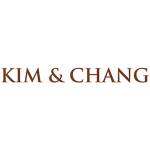Strengthened enforcement actions by Korean regulators against illegal short sales
Prior to April 2021, a person that breached the South Korean short sale rules was typically subject to an administrative fine of up to KRW 60 million (or up to KRW 30 million in the case of individuals). Then, the short sale rules under the Financial Investment Services and Capital Markets Act (FSCMA), the primary capital markets law in Korea, was amended in April 2021, allowing the imposition of monetary penalties up to the amount of short sale orders and introducing criminal penalties (imprisonment for one year or longer and/or a criminal fine equal to three to five times of the amount of the gain from the illegal short sale) for short sale breaches.
After a joint announcement by Korean financial regulators, including the Financial Services Commission (FSC) and the Financial Supervisory Service (FSS), regarding the supervision of short sale practices in July 2022, the Korean regulators have continuously increased the intensity of regulatory enforcement actions, and even established a special investigation unit dedicated to the investigation of short sale violations.
Traditionally, the Korean regulators had generally conducted investigations on isolated instances of short sale rule violations as they arose. However, towards the end of 2023, the FSS adopted a thematic plan for more drastic enforcement measures and undertook an industry-wide probe into the practices of almost all the global investment banks doing business in the Korean market to identify and uproot all illegal short sale practices.
Continued comprehensive enforcement action by the Korean financial regulators was in line with the Korean president’s desire to eradicate illegal short sales from the Korean market, which was in response to complaints from retail investors to the effect that the poor performance of the Korean stock market might have resulted from unfair trading practices such as short sale violations and that uprooting illegal short sale trades would be key to restore investors’ trust in the Korean market.
An announcement by the FSS in December 2023 that it had decided to file criminal complaints against two global investment banks for short sale breaches showed the strong commitment on the part of the Korean regulators.
With a much larger number of dedicated personnel focusing on short sale violations, the FSS is likely to continue its enforcement efforts with respect to the short sale practices of global investment banks and other investors, and may expand its enforcement actions against Korean brokers and global investment banks’ end clients, such as hedge funds involved in the placement of uncovered short sale trades in the Korean market.
This article summarises examples of short sale rule violations identified by the Korean financial regulators, and discusses current issues concerning the Korean short sale regime.
‘Naked’ short sales by global investment banks in the Korean market
According to various press releases and other disclosures, the FSS has identified several common patterns of illegal short sale practices by global investment banks, including the following representative cases:
Category 1 – short sale orders placed before the return of shares that were lent or provided as collateral to third parties. There are cases in which sell orders were submitted before confirmation of the return of shares that were lent or provided as collateral to third parties. The FSS concluded that such sell orders, based on inflated inventory that took into account certain unreturned shares, amounted to a ‘naked’ short sale.
Category 2 – short sale orders before a confirmed borrow. The FSS stated that some investors placed sell orders before there was a ‘confirmed borrow’ of a sufficient number of shares to be short sold. The FSS noted that when sell orders were placed not based on the number of shares whose borrowing has been confirmed but on the prospective number of shares that could be borrowed, such sell orders would amount to illegal short sale transactions.
Category 3 – short sale orders caused by inadequate internal inventory management. The FSS concluded that for some investment banks, there were deficient internal inventory management systems that did not accurately reflect the intercompany stock borrowing and lending among different aggregation units. When short sale orders were placed based on an inaccurate stock inventory and/or lending and borrowing position calculation, they resulted in an inadvertent naked short sale.
Category 4 – short sale orders caused by human errors. The FSS also discovered a number of naked short sale instances arising from erroneous booking or recording of available stock inventory during manual recording and the operation of inventory management systems.
Increasing monetary penalties imposed under the amended FSCMA
The FSS had traditionally treated short sale breaches as minor administrative and technical matters that could be addressed with relatively small monetary fines not exceeding KRW 60 million. However, Korean regulators have recently taken a more aggressive stance with respect to short sale breaches. This is reflected in the recently amended FSCMA, which provides that the penalty amount be calculated based on the amount of short sale orders, which can be substantially larger than the previous administrative fine of a nominal amount.
In March 2023, the Securities and Futures Commission (SFC) – which is a separate commission under the FSC and is delegated with the power to determine the administrative sanctions on parties engaging in unfair trading activities, including illegal short sales – imposed administrative penalties on two institutional investors, using the new calculation method under the amended FSCMA for the first time.
In one case, the internal system of an institutional investor prematurely showed as available a quantity of shares to be issued upon bonus issuance, which, in fact, took more time for issuance and listing. The relevant trader placed sell orders including the bonus issue portion that had not been issued and listed yet, resulting in a naked short sale. In the other case, the institutional investor placed a sell order based on an erroneous entry of the number of borrowed shares in its inventory management system. The Korean regulators imposed administrative penalties of KRW 3.87 billion and KRW 2.18 billion, respectively.
More recent cases demonstrate the Korean regulators’ commitment to address illegal short sale issues in the Korean market. In December 2023, the SFC imposed administrative penalties of KRW 11.44 billion on an affiliate of a French financial group and KRW 7.62 billion on the Korean affiliate of the same French financial group, and KRW 7.5 billion on an affiliate of a UK financial group. Then, in July 2024, the SFC imposed record-breaking administrative penalties of KRW 16.94 billion and KRW 10.23 billion on two affiliates of a Swiss-based financial group.
As there are a number of additional ongoing investigations against global investment banks, it remains to be seen whether the Korean authorities will continue to impose even heftier monetary sanctions for short sale violations.
While the Korean regulators have levied large amounts of administrative penalties based on their internal penalty guidelines, a Korean court recently issued a decision overturning the SFC’s imposition of an administrative penalty.
The case involved a European broker that received orders from its client to sell certain Korean-listed shares on behalf of a fund managed by the client. The European broker, however, mistakenly placed the sell orders for another fund that was managed by the same client with the Korean broker, resulting in a naked short sale. In this case, the total number of shares for which the Korean broker placed sell orders for the incorrect account exceeded the number of shares that the European broker had entrusted the Korean broker with.
The SFC imposed an administrative penalty in excess of KRW 1 billion on the European broker, while taking into account all the sell orders that the Korean broker had placed on the exchange. The Korean court ruled that the monetary penalty was excessive and beyond the permitted scope of discretion in light of relevant legal principles, and cancelled the SFC’s administrative sanction in its entirety. It remains to be seen whether the appellate court will uphold the first-instance court’s ruling, and whether the Korean regulators will adjust its internal policies and principles applied in assessing the administrative penalties in light of this court hearing.
Criminal prosecution of short sale breaches in the Korean market
Perhaps the most noteworthy event in the recent strengthened enforcement actions by the Korean regulators was the decision of the SFC in December 2023 to make a criminal referral of two global investment banks for investigation and prosecution by the Korean criminal investigation authorities.
According to the FSS press release, one investment bank failed to properly record its inter-aggregation unit lending and borrowing transactions, and placed sell orders relying on such inflated inventory, resulting in a naked short sale for a long period. In the other case, a global investment bank placed sell orders without a proper pre-borrow in place, as required by the relevant Korean laws, resulting in a naked short sale. There was no indication that the two global investment banks engaged in any unfair trading activities using a naked short sale scheme.
Upon completion of the FSS investigation, in addition to imposing a record-breaking amount of monetary penalties, the SFC referred the two global investment banks to the Korean prosecutors’ office. This marked the first time that Korean regulators had sought criminal liabilities for short sale breaches. In late March 2024, the Korean prosecutor’s office filed a criminal indictment against one of the two global investment banks and its employees for alleged violation of the penal provision of the FSCMA prohibiting naked short sales.
While the Korean regulators are expected to sustain their close scrutiny of illegal short sale transactions for the time being, it remains to be seen whether they will seek criminal investigations regarding recurring patterns of short sale breaches by other market participants. It is noteworthy that in July 2024, the SFC, while imposing yet another record-breaking amount of monetary penalties on foreign banks, decided not to refer a case for criminal investigation and prosecution.
Procedural issues
Meetings of the Review Committee and the SFC
As mentioned above, the SFC makes the final decision regarding the imposition of administrative sanctions for short sale breaches. The SFC renders its decision after reviewing the outcome of an FSS investigation regarding alleged breaches and a recommendation of the Capital Markets Investigation Review Committee (the Review Committee), an advisory body to the SFC that reviews FSS findings and recommendations before making its own recommendation to the SFC.
Upon completion of its investigation, the FSS issues a notice regarding the alleged breaches and proposed sanctions (an Advance Notice) to the party to be sanctioned (the Sanctioned Party). Through the Advance Notice, the FSS would provide the Sanctioned Party with a chance to submit a defence position paper to the meetings of the Review Committee and the SFC.
The Sanctioned Party may also attend the Review Committee meeting to make a presentation of its defence regarding the alleged breaches. The Review Committee generally issues its resolution on a matter at the initial meeting upon review of the presentation and other relevant materials.
The SFC meeting would generally be held about 10 days after the Review Committee’s resolution. Similar to the Review Committee, the SFC will generally make its decision on a given agenda during the first meeting.
Interim press releases and disclosure of a Sanctioned Party’s identity
In December 2022, the FSC announced that to strengthen the effectiveness of administrative sanctions against unfair trading activities, including a naked short sale, it would disclose, among others, the identities of the parties subject to sanction measures, with the exception of those who would be referred to the prosecutors’ office for criminal investigation.
While the Korean regulators previously refrained from disclosing the identities of Sanctioned Parties in consideration of potential misuse of information that may be inferred from the identities of Sanctioned Parties, they decided to adopt the new measures to emphasise the need to prevent unfair trading activities.
Following the above policy changes, until recently, the Korean financial regulator’s disclosure of the identities of Sanctioned Parties took the form of publishing on the FSC’s website the SFC meeting minutes (in which the identities of the Sanctioned Parties would be disclosed), about two months after the SFC meeting. However, more recently, the names of the relevant parties subject to enforcement action have been disclosed in news reports immediately after a press release was issued by the regulator.
The Korean financial regulators’ more active use of press releases is not limited to the above. While they typically issued a press release only after the final decision of the SFC regarding the imposition of administrative sanction, more recently, the FSS has started issuing ‘interim’ press releases to publicise the progress of its investigation. In this regard, the parties that are subject to Korean financial regulators’ enforcement actions would need to pay closer attention throughout the investigation to address any public relations, reputational damage, and/or regulatory disclosure issues.
Proposed improvement measures for the Korean short sale regime
The Korean government has temporarily banned short sales in Korea until the end of March 2025, and declared that the short-sale ban would be lifted only upon the adoption and implementation of certain legislative and compliance measures, as further explained below.
Establishment of additional IT system(s) to prevent naked short sales
Measures | Details |
Establishment of real-time inventory management system | All institutional investors (corporate investors that (i) for one day or more since January 1 2023 have held a net short position balance in respect of a relevant listed Korean security exceeding 0.01% of all the issued shares of the relevant security or amounting to KRW 1 billion or more in a notional amount, or (ii) plan to hold such a net short position in the future) will be required to establish an internal inventory management system that enables the investor to check its sellable inventory on a real-time basis. |
Establishment of Naked Short-selling Detection System (NSDS) | The Korea Exchange (KRX) will develop the NSDS, allowing the KRX to confirm whether there were any naked short sale activities by market participants within a prescribed period, and requiring institutional investors to report to the KRX regarding start-of-day inventory and details of over-the-counter trades within a prescribed deadline. |
Adoption of internal control standards (the Internal Control Guidelines) | All institutional investors and corporate investors intending to engage in short sale transactions of listed Korean securities will be required to prepare Internal Control Guidelines to prevent a systemic failure of the inventory management system and the occurrence of a naked short sale. |
Verification obligations for brokers (e.g., Korean securities companies) | KRX member(s) receiving short sell orders from overseas investor(s) will be required to (i) verify the internal inventory management system and the Internal Control Guidelines of the clients on an annual basis, and (ii) accept short sale orders only from the clients for which the aforementioned verification process is completed. |
Levelling the playing field
Measures | Details |
Term of stock loans | For institutional investors and retail investors, the applicable repayment period for stock loans intended to cover short sell orders would be 90 days, which may be extended for a total of 12 months at a maximum. |
Adjustment of the collateral ratio for retail investors | The cash collateral ratio for stock loans intended to cover short sell orders for institutional investors and retail investors will be set at 105%. In addition, for retail investors, the collateral ratio for Korea Composite Stock Price Index 200 stocks will be set at 120% (which is lower than the 135% for institutional investors). |
Strengthened enforcement
Measures | Details |
Continued enforcement actions for illegal short selling | The FSS and the FSC will continue to strongly enforce the Korean short sale regulations. |
Increasing monetary penalties and applicable imprisonment sentence | The level of criminal fines for illegal short sales will be increased to four to six times the amount of unfair profits. The individual perpetrator(s) may be subject to a life sentence, depending on the amount of the unfair profits. |
Imposition of additional administrative sanctions | If a person violates the Korean short sale regulations, the person may be subject to administrative sanctions, including prohibition from (i) trading financial investment products in the domestic market for up to 10 years, and (ii) serving as an executive for financial companies or listed companies for up to 10 years. |
Miscellaneous
Measures | Details |
More stringent disclosure requirements | Investor(s) with a net short position balance equivalent to 0.01% of the total issuance volume or KRW 1 billion or more would be required to make a public disclosure of such a position. |
Restriction on the acquisition of convertible bonds (CBs) and bonds with warrants (BWs) | Upon the disclosure of a plan to issue CBs/BWs until disclosure of the issuance price for relevant CBs/BWs, investors that placed short sale orders will be prohibited from acquiring relevant CBs/BWs. |
Final thoughts
The Korean government and legislators have been taking necessary actions, including amending the relevant laws and regulations, to implement the aforementioned reform and improvement measures. However, to facilitate the adoption and implementation of the requisite compliance system by individual corporate investors, it may be necessary for the Korean regulators and/or financial industry associations to circulate more detailed guidance, including descriptions of examples of transactions that constitute a breach of the short sale regulations in Korea.




